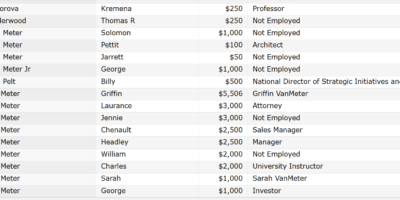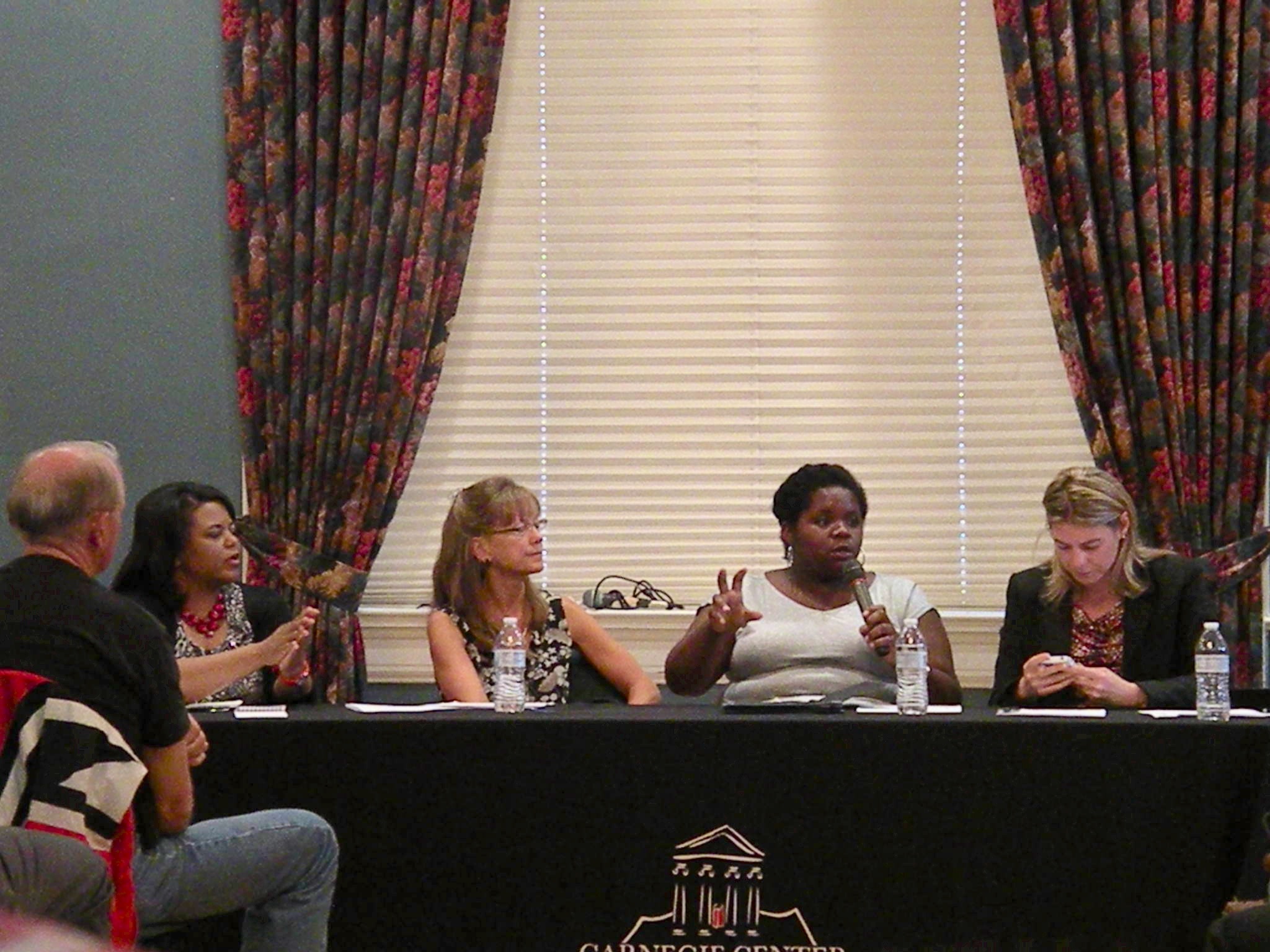By Michael Dean Benton
When the news of the verdict of innocent for George Zimmerman in the shooting death of Trayvon Martin was announced, there was an explosion of concern and comments on social media about how the decision reflects ongoing problems in regards to racism in American culture. At the same time, there was a counter-narrative that included paranoid declarations of arming for the coming race riots and lauding the verdict as a symbol of the rightness of self-appointed community policing.
Clearly there was a lot of confusion about the actual trial and the impact of laws, like Stand Your Ground, on the jurors’ verdict. This is why it was so important that communities across the nation immediately responded by gathering together to hold vigils, to actively protest the verdict, and to convene town-hall meetings to discuss the trial and ongoing racism.
In Lexington, Bianca Spriggs led the organizing of a town-hall style forum at the Carnegie Center on July 16. In the two days leading up to the event, despite her calls for civility, arguments concerning the verdict began to flare on the Facebook event page. It was quite obvious that Spriggs was scrambling to develop a sense of communal dialogue in order to avoid pointless, dismissive arguments. This was most clearly demonstrated in her continuous revision of the rules of dialogue and the decision, at one point, to remove long, rambling dialogues that violated the spirit of the gathering.
On the night of the community gathering, I wondered what the spirit of the proceedings would be. Would our community be able to come together to discuss our reactions and concerns in a civil manner? Or, would it spiral into aggressive dialogue that shuts down any understanding? Arriving a half-hour before the event, I watched with interest as people filled the hall and the overflow area. The overall mood seemed to be one of a community coming together to solve problems. As a person who has experienced the trauma of violence more than once, it was quite obvious to me that there were people feeling pain and dealing with ongoing feelings of injustice. Once again, Spriggs attempted to set the tone with a very important reminder: “We are not here to change your mind; rather, we are here to learn how to coexist with our neighbors.”
The discussion
The panel of speakers was a pleasant surprise. Renee Shaw of KET was a very able moderator, engaging panel members and audience questions with skill and style. Kentucky House Representative Kelly Flood demonstrated why she is one of the few local politicians who seem to grasp the problems that our communities face. She discussed her dealings with NRA lobbyists (who, she pointed out, are quite different from rank-and-file members) who seek to ram through laws that benefit weapon manufacturers and are detrimental to communities. (I would also encourage people to investigate the American Legislative Exchange Council [ALEC], an organization that is just as important in getting Stand Your Ground laws passed in various states and has worked to continuously loosen restrictions on gun laws.)
Melynda Price and Katherine Paisley, both lawyers, provided essential explanations of Stand Your Ground laws in Florida and Kentucky. Not having the time to watch the Zimmerman trial, I had assumed wrongly that he was declared innocent because of this law, but in actuality he had rejected that route and claimed “self-defense.” Town-hall panelists suggested that was a strategic choice: if Zimmerman had lost his bid for the Stand Your Ground defense, his testimony could have been used against him. I was also shocked to learn the extent of Kentucky’s Stand Your Ground laws and that they have recently been revised. David Price, who later spoke on the NRA and the defense of Second Amendment laws, encouraged the audience to learn about Kentucky’s version by looking at KRS 503 (our state law regarding self-defense).
The panel was essential for getting a grasp on the legal aspects of the Zimmerman case, and possible future cases; however, it was the opportunity for the community to speak out which may have been the most important aspect of the event. Poet Nikki Finney read Eugene Robinson’s Washington Post editorial “Black Boys Denied the Right to Be Young.” Finney remarked that we need to confront the American four-letter word and recognize the way it was erased from the Zimmerman trial.
Gabriel Estridge asked the panel about the statistics regarding who is able to successfully use Stand Your Ground laws to defend themselves when they kill someone. Price said that a major difficulty in finding statistics is that many of these cases never result in charges being brought against a defendant. I noted that it was six weeks before Zimmerman was charged for killing Martin and that charges were only brought against him because of a nationwide outcry.
Particularly poignant and important at the town hall meeting were the testimonies of parents who fear for the safety of their children and of people who have been the victims of racism. There was a discussion of policing in our communities, and although Lexington’s police force had been invited to participate, they declined to send a representative.
Importantly, Spriggs decided to end the meeting with community organizers introducing their organizations and work so that interested community members could contact them.
This meeting was a step forward in opening dialogue in our community, but as was mentioned multiple times, it can’t end there. People need to come together to develop community relations and community organizations that work together to bring about positive changes and that seek to develop strong communities.
For those who could not come, an audio recording by Lujza Hayes Nehrebeczky of the town hall meeting is available.
This piece is one of three appearing in our August 2013 print edition under the headline, Still thinking about Trayvon Marin. The others included “Spinning race for ratings” and “On jury nullification.”





Leave a Reply